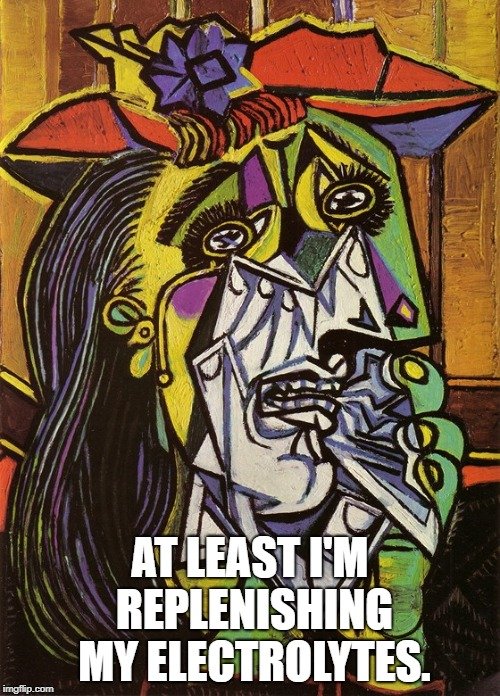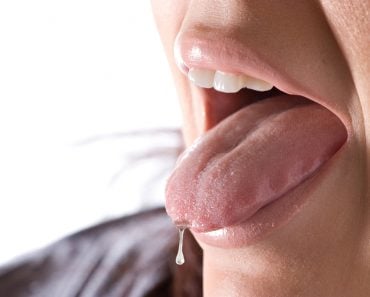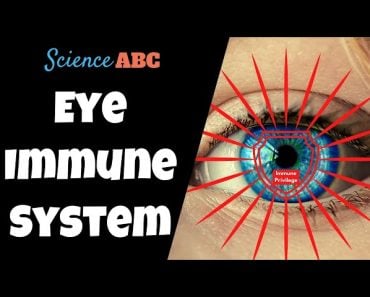Table of Contents (click to expand)
Our tears are salty because they contain electrolytes, which are natural salts that the body requires for nervous system function and the transfer of information between different nerve cells. The most important electrolytes (salts) that we have in the body include potassium, sodium, calcium, bicarbonate, phosphate and magnesium, among others. When you stick out your tongue and taste a bit of salt in your tears, it demonstrates just how sensitive our sense of taste really is.
During particularly sad movies, when you’re going through a personal tragedy, or simply while cooking yourself an onion-heavy meal, you’ve experienced the sensation of tears running down your cheeks. Crying is something that we have been doing since birth; in fact, it’s probably the very first thing you did after you came wailing into the world. Given how universal the act of crying is, a few of those tears have undoubtedly run into every person’s mouth on the planet, revealing their salty truth!

To be honest, the unusual salty taste of tears remains a source of surprise whenever they strike one of my taste buds, begging the question—why? Why do our tears have such an undeniable salty aftertaste?
Before we can delve into the full explanation of that question, let’s first take a look at the composition of our tears.
Recommended Video for you:
Composition Of Tears
Our eyes are one of the most impressive adaptations in our body, not only gifting us with the ability to see, but also the complex mechanisms and systems to keep our precious eyes safe. Ensuring that the eye doesn’t become dried out when open is of critical importance, which is why we blink. Each time we close our lids, a thin layer of lacrimal fluid is spread across the surface of the eye. These “everyday” tears are called basal tears, and are composed of water, lipids, mucin, immunoglobulins, sodium and potassium, among other substances, including a range of antioxidants like ascorbate and urate. Many of the components of basal tears are intended to protect the eye from foreign pathogens or other potential bacterial threats.
The second type of tears that form in our eyes are called reflex tears, and as the name implies, they form in response to an intense external stimuli. If you are caught outside in a sandstorm, or perhaps touch your eye after slicing a jalapeno pepper, these reflex tears form to flush out the offending stimuli. The irritants that can trigger such reflex tears may also do so through the mucus membranes, the nose or mouth, all of which are linked to the same defensive mechanism of tears for rapid cleansing.
 The final type of tears are called psychic tears, and are the tears generated through intense emotional experiences—happiness, grief, exhaustion, amusement, etc. Interestingly enough, the pathway by which such “emotional tears” are generated is quite different, controlled by the limbic system of the brain, which affects the parasympathetic nervous system, releasing neurotransmitters that trigger the lacrimal gland to produce tears! Not only is the pathway of emotional tear generation different, but so is the composition of the tears. There is a much higher concentration of protein-based hormones, as well as a mild analgesic substance, leucine-enkephalin, a natural painkiller.
The final type of tears are called psychic tears, and are the tears generated through intense emotional experiences—happiness, grief, exhaustion, amusement, etc. Interestingly enough, the pathway by which such “emotional tears” are generated is quite different, controlled by the limbic system of the brain, which affects the parasympathetic nervous system, releasing neurotransmitters that trigger the lacrimal gland to produce tears! Not only is the pathway of emotional tear generation different, but so is the composition of the tears. There is a much higher concentration of protein-based hormones, as well as a mild analgesic substance, leucine-enkephalin, a natural painkiller.
Clearly, not all tears are made equal, and even when they are dried and looked at under a microscope, it is possible to see the difference between tears generated by a bad break-up and those generated by a hint of pepper spray!
But Why Are Tears Salty?
As mentioned, basal tears do contain potassium and sodium, two of the most important electrolytes that we have in the body. For those who don’t know, electrolytes are natural salts that the body requires for nervous system function and the transfer of information between different nerve cells. The most important electrolytes (salts) that we have in the body include potassium, sodium, calcium, bicarbonate, phosphate and magnesium, among others.
 When you stick out your tongue and taste a bit of salt in your tears, it demonstrates just how sensitive our sense of taste really is. Roughly 98% of tears are made of pure water, while the remaining 2% contain all the other substances and compounds we explained above. Yet, even with such a low level of salinity, your tears make the environment of your eye unpleasant for bacterial growth. Your tears are used most often as an extension of your immune system, so the salty presence in your tears makes perfect sense.
When you stick out your tongue and taste a bit of salt in your tears, it demonstrates just how sensitive our sense of taste really is. Roughly 98% of tears are made of pure water, while the remaining 2% contain all the other substances and compounds we explained above. Yet, even with such a low level of salinity, your tears make the environment of your eye unpleasant for bacterial growth. Your tears are used most often as an extension of your immune system, so the salty presence in your tears makes perfect sense.
Furthermore, we are salty creatures, with nearly a half a pound of salt in our bodies at all times, so it makes sense that this very natural fluid would also have some concentration of salt. The water in our bodies is inherently salty—albeit less salty than the ocean—and it would require a lot of cellular energy to ensure that our tears were 100% pure water. Additionally, some of the other salts and ions found in our tears help in lubrication, protection and healing processes within the eye.
The best thing about having three different kinds of tears, however, is that the body can react with an appropriate salinity concentration and type of tear depending on the threat at hand!

A Final Word
The fact that our tears are salty is yet another argument for the remarkable complexity and interconnectedness of our bodies. Natural selection has found the most convenient and effective path forward, ensuring that our eyes are protected from harm by using compounds already present in the body’s fluids. Even the simplest things, such as the (reflex) tears streaming from the corners of your eyes on a convertible ride, tell an impressive story of human evolution and our amazing bodies!













